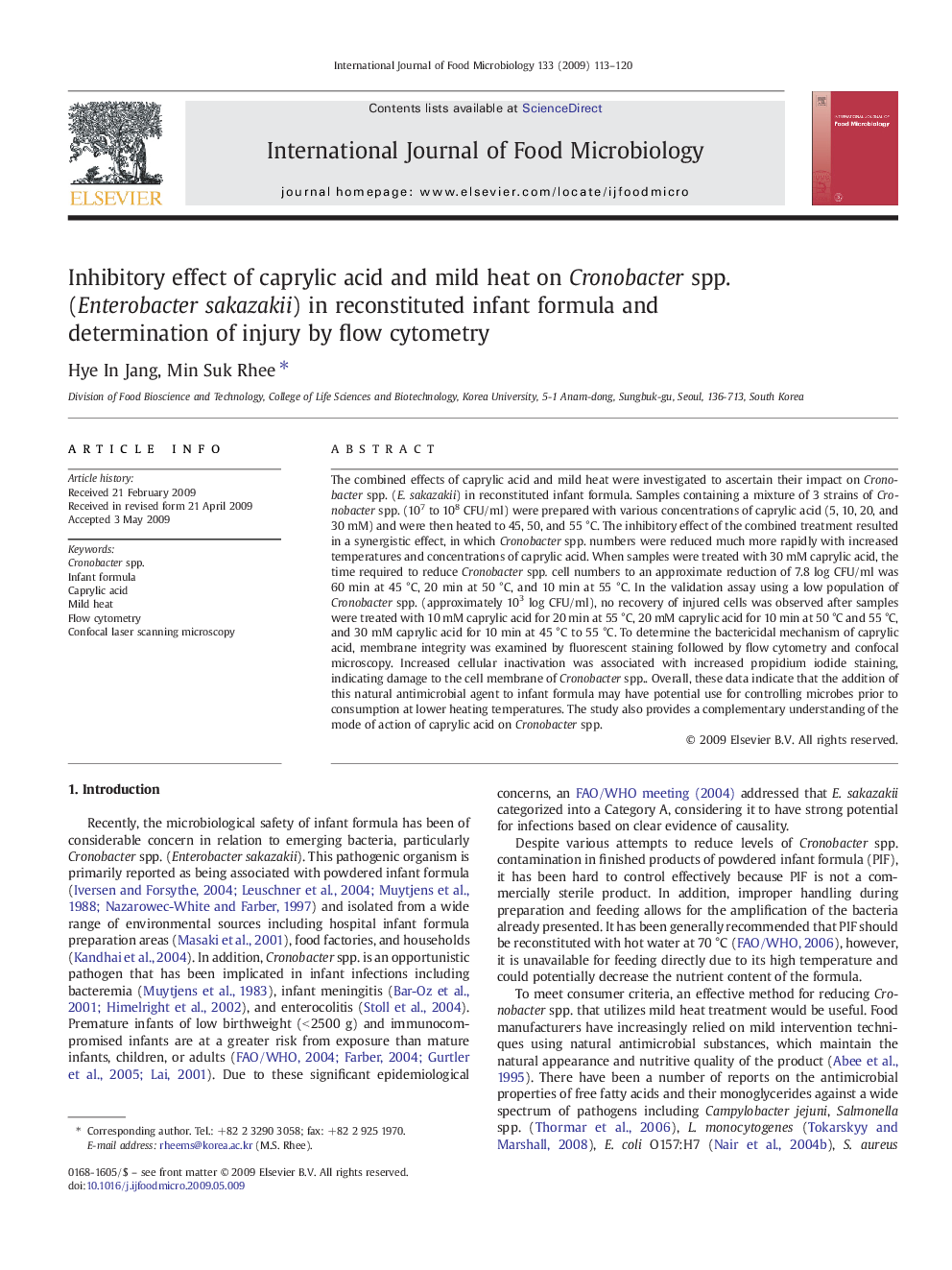| کد مقاله | کد نشریه | سال انتشار | مقاله انگلیسی | نسخه تمام متن |
|---|---|---|---|---|
| 4368635 | 1616704 | 2009 | 8 صفحه PDF | دانلود رایگان |

The combined effects of caprylic acid and mild heat were investigated to ascertain their impact on Cronobacter spp. (E. sakazakii) in reconstituted infant formula. Samples containing a mixture of 3 strains of Cronobacter spp. (107 to 108 CFU/ml) were prepared with various concentrations of caprylic acid (5, 10, 20, and 30 mM) and were then heated to 45, 50, and 55 °C. The inhibitory effect of the combined treatment resulted in a synergistic effect, in which Cronobacter spp. numbers were reduced much more rapidly with increased temperatures and concentrations of caprylic acid. When samples were treated with 30 mM caprylic acid, the time required to reduce Cronobacter spp. cell numbers to an approximate reduction of 7.8 log CFU/ml was 60 min at 45 °C, 20 min at 50 °C, and 10 min at 55 °C. In the validation assay using a low population of Cronobacter spp. (approximately 103 log CFU/ml), no recovery of injured cells was observed after samples were treated with 10 mM caprylic acid for 20 min at 55 °C, 20 mM caprylic acid for 10 min at 50 °C and 55 °C, and 30 mM caprylic acid for 10 min at 45 °C to 55 °C. To determine the bactericidal mechanism of caprylic acid, membrane integrity was examined by fluorescent staining followed by flow cytometry and confocal microscopy. Increased cellular inactivation was associated with increased propidium iodide staining, indicating damage to the cell membrane of Cronobacter spp.. Overall, these data indicate that the addition of this natural antimicrobial agent to infant formula may have potential use for controlling microbes prior to consumption at lower heating temperatures. The study also provides a complementary understanding of the mode of action of caprylic acid on Cronobacter spp.
Journal: International Journal of Food Microbiology - Volume 133, Issues 1–2, 31 July 2009, Pages 113–120